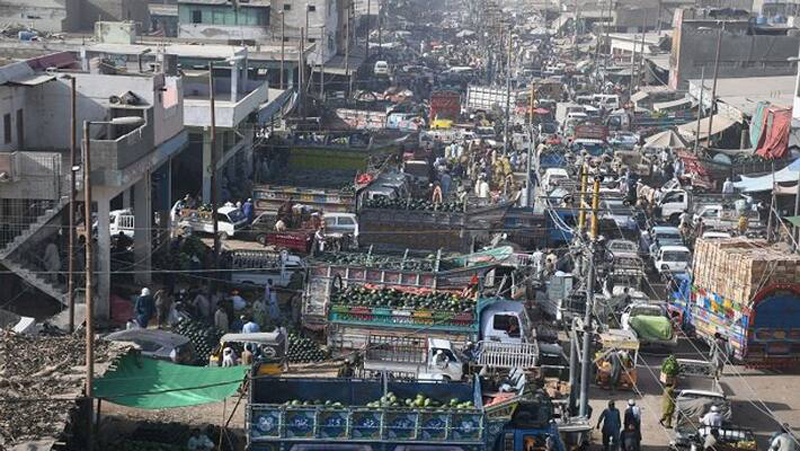KARACHI, Nov 24:
Savita, a 30-year-old Hindu woman clad in her vibrant Banarasi saree with a messy braided hairdo and red bangles, is an important part of the undocumented micro economy of Pakistan’s biggest cosmopolitan city of Karachi which attracts thousands of migrants and immigrants every year for this reason.
Savita belongs to the third generation of her family and runs a makeshift stall on the footpath outside the magnificent Empress Market Building in the hustle and bustle of the Saddar area every day to sell dry fruits.
According to her, Hindu women have earned a sustained livelihood for their families for generations despite challenges and difficulties due to their minority status and the Covid pandemic.
“My grandmother and Naani started working here after the war in 1965 and since then my mother, sister and now me have carried on as it allows us to earn a respectable livelihood,” she said.
Women like Savita have kept Karachi thriving as this informal sector accounts for up to 40 per cent of the city’s economy and 72 per cent of urban employment.
About 200 women like Savita make their living selling dry fruits and nuts at the Empress Market.
However, life for these women has been far from easy.
Being from the minority Hindu community, they constantly battle harassment and taunts from Pashtun businessmen.
“There are times when some shopkeepers, who mostly belong to the Pashtun community fight, with us claiming we disturb their businesses. There have been incidents when some have harassed our women as well,” said Vijaytha, another 20-year-old Hindu women vendor.
But Savita along with Mala, another seller, insist that generally the behaviour of the public and people towards them is good and they are not scared of working from morning to evening outside the Empress Market.
When asked whether her daughter will also follow in her footsteps, Savita replied: “She is just 15 now we will see what to do.”
On further prodding, Savita said she stopped sending her daughter to school in their neighbourhood after some boys started to tease and harass her.
“We have to take care of our daughters that is the way it is,” she said.
Abductions, forced conversions and illegal marriages are the biggest challenges faced by Hindu women in Pakistan and Savita’s story is no different.
Besides limited work opportunities and lack of acceptance, minorities also face a larger threat in the face of inconsiderate behaviour of the institutions meant to protect them.
Before the COVID pandemic, around 500 Hindu women used to work around the Empress Market.
“Some of them have now either gone to India or shifted to some other city with relatives,” Mala said.
These women grind away under an umbrella, overlooking dust, debris and mounds of filth and squalor.
“Business in winter is slow because the prices of dry fruits go up and they become very expensive so we don’t get many customers,” said Vijaytha.
Kajal, another vendor, says no one can imagine how difficult it is to earn a livelihood while sitting on a footpath.
“We also have to deal with the policewalas (policemen) patrolling in the market who keep on grabbing a fist full of dry fruits from our stalls,” she said.
Before the pandemic struck, a mass eviction drive in 2019 upended the lives of these innocent women.
The anti-encroachment drive initiated three years ago and funded by the World Bank was meant to provide the Empress Market with a facelift.
The move saw the demolition of around 1,700 shops. Around 3,000 hawkers, including many Hindu women, were asked to relocate.
An estimated 200,000 people lost their livelihood in this anti-encroachment drive. Sharda Devi, who has been doing business for over two decades in this neck of the woods, recalled the time when they held protests outside the Karachi Press Club to pressurise authorities to give them a chance to resume business.
“There was a lady journalist who helped us a lot and she sent petitions on our behalf,” she said. (PTI)
Trending Now
E-Paper


